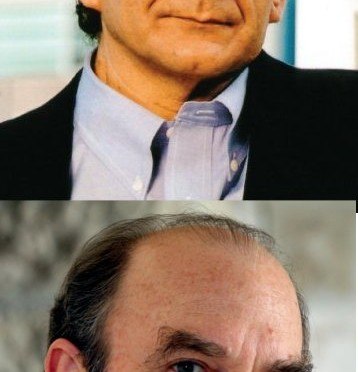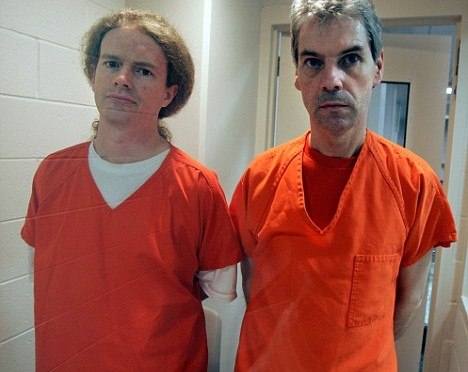Netanyahu Addresses AIPAC 2012 (3.5.12)
Excerpts from Full Text of Netanyahu Speech to AIPAC 2012:
I also want to recognize Yossi Peled, who is here tonight. Yossi, would you please stand up.
Yossi was born in Belgium. His parents hid him with a Christian family during the Holocaust, World War II. His father and many other members of his family were murdered at Auschwitz.
His mother survived the Holocaust, returned to reclaim Yossi, and brought him to Israel. He became one of Israel’s bravest and greatest generals. And today, he serves as a minister in my cabinet.
Yossi’s life is the story of the Jewish people – the story of a powerless and stateless people who became a strong and proud nation, able to defend itself.
And ladies and gentlemen, Israel must always reserve the right to defend itself.
Tonight, I’d like to talk to you about a subject that no one has been talking about recently…: Iran.
Every day, I open the newspapers and read about these redlines and these timelines. I read about what Israel has supposedly decided to do, or what Israel might do.
Well, I’m not going to talk to you about what Israel will do or will not do, I never talk about that. But I do want to talk to you about the dangers of a nuclear-armed Iran. I want to explain why Iran must never be allowed to develop nuclear weapons.
President Obama has reiterated his commitment to prevent that from happening. He stated clearly that all options are on the table, and that American policy is not containment.
Well, Israel has exactly the same policy — We are determined to prevent Iran from developing nuclear weapons; we leave all options on the table; and containment is definitely not an option.
The Jewish state will not allow those who seek our destruction to possess the means to achieve that goal.
A nuclear armed Iran must be stopped.
Iran’s proxies have dispatched hundreds of suicide bombers, planted thousands of roadside bombs, and they fired over twenty thousand missiles at civilians.
Through terror from the skies and terror on the ground, Iran is responsible for the murder of hundreds, if not thousands, of Americans.
In 1983, Iran’s proxy Hezbollah blew up the Marine barracks in Lebanon, killing 240 US Marines. In the last decade, it’s been responsible for murdering and maiming American soldiers in Afghanistan and in Iraq.
Just a few months ago, it tried to assassinate the Saudi Ambassador to the US in a restaurant just a few blocks from here. The assassins didn’t care that several Senators and members of Congress would have been murdered in the process.
Now this is real chutzpa, Iran accuses the American government of orchestrating 9/11, and that’s as brazen as denying the Holocaust, and they do…
Iran calls for Israel’s destruction, and they work for its destruction – each day, every day.
This is how Iran behaves today, without nuclear weapons. Think of how they will behave tomorrow, with nuclear weapons. Iran will be even more reckless and a lot more dangerous.
There’s been plenty of talk recently about the costs of stopping Iran. I think it’s time we started talking about the costs of not stopping Iran.
A nuclear-armed Iran would dramatically increase terrorism by giving terrorists a nuclear umbrella. Let me try to explain what that means, a nuclear umbrella.
It means that Iran’s terror proxies like Hezbollah, Hamas will be emboldened to attack the United States, Israel, and other countries because they will be backed by a power that has atomic weapons. So the terrorism could grow tenfold.
I want you to think about what it would mean to have nuclear weapons in the hands of those who lead millions of radicals who chants of “Death to America” and “Death to Israel.”
When you think about that m you’ll reach a simple conclusion: for the sake of our prosperity, for the sake of our security, for the sake of our children, Iran must not be allowed to acquire nuclear weapons!
Of course, the best outcome would be if Iran decided to abandon its nuclear weapons program peacefully. No one would be happier than me and the people of Israel if Iran dismantled its program.
But so far, that hasn’t happened. For fifteen years, I’ve been warning that a nuclear-armed Iran is a grave danger to my country and to the peace and security of the entire world.
Some commentators would have you believe that stopping Iran from getting the bomb is more dangerous than letting Iran have the bomb. They say that a military confrontation with Iran would undermine the efforts already underway; that it would be ineffective; and that it would provoke an even more vindictive response by Iran.
I’ve heard these arguments before. In fact, I’ve read them before — In my desk, I have copies of an exchange of letters between the World Jewish Congress and the United States War Department.
Here are the letters:
The year was 1944. The World Jewish Congress implored the American government to bomb Auschwitz. The reply came five days later. I want to read it to you.
Such an operation could be executed only by diverting considerable air support essential to the success of our forces elsewhere…
and in any case, it would be of such doubtful efficacy that it would not warrant the use of our resources…
And, my friends, here’s the most remarkable sentence of all, and I quote:
Such an effort might provoke even more vindictive action by the Germans.
Think about that – “even more vindictive action” — than the Holocaust.
Barack Obama’s AIPAC 2012 speech
Excerpts from Transcript of Obama’s AIPAC speech:
[Former Israeli President] Shimon [Peres] once described the story of the Jewish people by saying it proved that, “slings, arrows and gas chambers can annihilate man, but cannot destroy human values, dignity, and freedom.”
Four years ago, I stood before you and said that, “Israel’s security is sacrosanct. It is non-negotiable.” That belief has guided my actions as president. The fact is my administration’s commitment to Israel’s security has been unprecedented. Our military and intelligence cooperation has never been closer. Our joint exercises and training have never been more robust. Despite a tough budget environment, our security assistance has increased every single year. We are investing in new capabilities. We’re providing Israel with more advanced technology – the types of products and systems that only go to our closest friends and allies. And make no mistake: We will do what it takes to preserve Israel’s qualitative military edge – because Israel must always have the ability to defend itself, by itself, against any threat.
The reality that Israel faces – from shifting demographics, to emerging technologies, to an extremely difficult international environment – demands a resolution of this issue. And I believe that peace with the Palestinians is consistent with Israel’s founding values – because of our shared belief in self-determination, and because Israel’s place as a Jewish and democratic state must be protected.
And just as we’ve been there with our security assistance, we’ve been there through our diplomacy. When the Goldstone report unfairly singled out Israel for criticism, we challenged it. When Israel was isolated in the aftermath of the flotilla incident, we supported them. When the Durban conference was commemorated, we boycotted it, and we will always reject the notion that Zionism is racism.
When one-sided resolutions are brought up at the Human Rights Council, we oppose them. When Israeli diplomats feared for their lives in Cairo, we intervened to save them. When there are efforts to boycott or divest from Israel, we will stand against them. And whenever an effort is made to delegitimize the state of Israel, my administration has opposed them. So there should not be a shred of doubt by now – when the chips are down, I have Israel’s back.
Which is why, if during this political season you hear some questions regarding my administration’s support for Israel, remember that it’s not backed up by the facts. And remember that the U.S.-Israel relationship is simply too important to be distorted by partisan politics. America’s national security is too important. Israel’s security is too important.
I said that America’s commitment to Israel’s security is unshakeable, our friendship with Israel is enduring and that Israel must be recognized. No American president has made such a clear statement about our support for Israel at the United Nations at such a difficult time. People usually give those speeches before audiences like this one – not before the General Assembly.
And I must say, there was not a lot of applause. But it was the right thing to do. And as a result, today there is no doubt – anywhere in the world – that the United States will insist upon Israel’s security and legitimacy. That will be true as we continue our efforts to pursue – in the pursuit of peace. And that will be true when it comes to the issue that is such a focus for all of us today: Iran’s nuclear program – a threat that has the potential to bring together the worst rhetoric about Israel’s destruction with the world’s most dangerous weapons.
Let’s begin with a basic truth that you all understand: No Israeli government can tolerate a nuclear weapon in the hands of a regime that denies the Holocaust, threatens to wipe Israel off the map and sponsors terrorist groups committed to Israel’s destruction. And so I understand the profound historical obligation that weighs on the shoulders of Bibi Netanyahu and Ehud Barak and all of Israel’s leaders.
A nuclear-armed Iran is completely counter to Israel’s security interests. But it is also counter to the national security interests of the United States.
Indeed, the entire world has an interest in preventing Iran from acquiring a nuclear weapon. A nuclear-armed Iran would thoroughly undermine the nonproliferation regime that we’ve done so much to build.
I have said that when it comes to preventing Iran from obtaining a nuclear weapon, I will take no options off the table, and I mean what I say. That includes all elements of American power: a political effort aimed at isolating Iran, a diplomatic effort to sustain our coalition and ensure that the Iranian program is monitored, an economic effort that imposes crippling sanctions and, yes, a military effort to be prepared for any contingency.
Iran’s leaders should understand that I do not have a policy of containment; I have a policy to prevent Iran from obtaining a nuclear weapon. And as I have made clear time and again during the course of my presidency, I will not hesitate to use force when it is necessary to defend the United States and its interests.
These are challenging times. But we’ve been through challenging times before, and the United States and Israel have come through them together. Because of our cooperation, citizens in both our countries have benefited from the bonds that bring us together. I’m proud to be one of those people. In the past, I’ve shared in this forum just why those bonds are so personal for me: the stories of a great uncle who helped liberate Buchenwald, to my memories of returning there with Elie Wiesel; from sharing books with President Peres to sharing seders with my young staff in a tradition that started on the campaign trail and continues in the White House; from the countless friends I know in this room to the concept of tikkun olam that has enriched and guided my life.
– – –
So here we have the commander in chief of USG’s armed forces and his Israeli counterpart, speaking to the same group of people, telling them what they want to hear. What is said is so similar that it could have come from the same speech writer. For all the self-interested jewish bluster about Barack Obama being bad for Israel, or being at odds with Benjamin Netanyahu, it is clear that they agree on these essential points:
– An attack on Iran is coming.
– They will order this attack first and foremost to serve what they believe are the best interests of jews.
– For justification they cite a one-sided, jewish version of history, and specifically the holocaust narrative which paints Europeans as victimizers of jews.
On the last point the Israeli goes farther and blames Americans as well.
The jewish organization Obama and Netanyahu addressed is more powerful than the US Congress. Congress votes the way AIPAC tells them to. As the current US president has made clear, concern for jewish interests extends to and dominates both major political parties and the executive branch as well.





